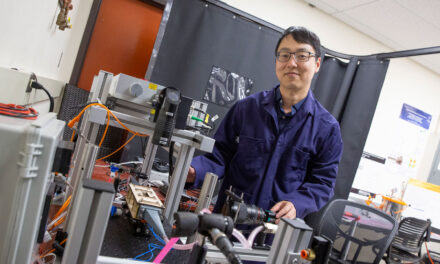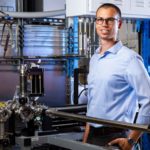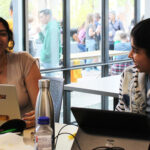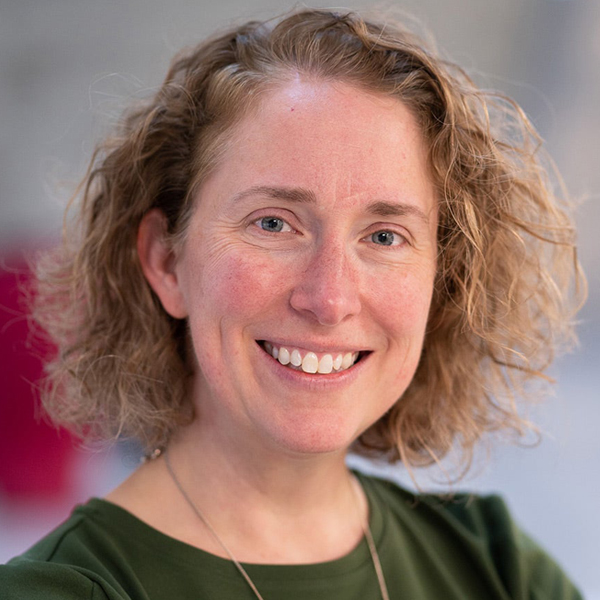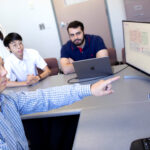
New Faculty Member, 2022–23
Heather Clark
School Director and Professor, Biomedical engineering
Heather Clark was drawn to the School of Biological and Health Systems Engineering, one of the seven schools in the Ira A. Fulton Schools of Engineering at Arizona State University, due to the enthusiasm and commitment of the faculty to their research and teaching.
Clark will take the helm of the school this fall to guide this energy as its new director. Her vision for the school is to work together to make real impacts. While this is often biomedical engineers’ purpose for entering the field, Clark realizes the day-to-day tasks of an academic often get in the way.
“I hope to empower the faculty to take risks in their research, entrepreneurship and teaching that result in impact in those areas,” Clark says, “for example, translating prominent research to the clinic or starting a company while engaging our innovative students in the process as a real-world teaching opportunity.”
These goals, as well as the passion of her new faculty members, align well with the ASU Charter. Clark says she had never seen so much focus on a charter at other universities she has visited, and she looks forward to also supporting the charter in her new role.
Clark brings a wealth of experience from her work as a professor of bioengineering at Northeastern University, where she has worked in various positions over the past 12 years.
She was also the founding director of the Institute for Chemical Imaging of Living Systems, or CILS, which develops imaging tools that highlight chemical processes clinicians can use for disease diagnostics and treatment. In that role, she envisioned the scientific idea of the institute and built the infrastructure, including its staff and Imaging Core facility.
“I brought together faculty and students around a research team and built the infrastructure to enable discovery and impact,” she says. “I would like to bring these themes — teamwork, centralized research resources and partnerships with industry — to the school.”
In her research, Clark is particularly fascinated by nanosensors and their ability to measure aspects of the human body that can’t be accessed with traditional methods.
“Many of the processes of the body, from neural signaling to the immune system, are specific biochemical signatures that can’t be readily visualized,” she says. “Tools produced by my group can measure processes that can’t be imaged any other way.”
Her nanosensor research is particularly focused on its use in the brain and nervous system, and she has multiple ongoing research projects funded by the National Institutes of Health Brain Research Through Advancing Innovative Neurotechnologies, or NIH BRAIN Initiative, and the National Institute of Biomedical Imaging and Bioengineering, one of the National Institutes of Health.
Clark’s work has earned numerous honors, including a Defense Advanced Research Projects Agency, or DARPA, Young Faculty Award for research into nanosensors that monitor neurotransmitter release in the brain, and she is a fellow of the American Institute for Medical and Biological Engineering, also known as AIMBE. Clark also has numerous U.S. patents for work related to her research.
She has published more than 50 peer-reviewed research articles and has been invited to speak at many conferences and seminars. Clark is often quoted by the media — including The Atlantic, CNN and WIRED — as an expert in nanotechnology, wearable and implanted technology and other topics related to her research.
In education, Clark is interested in preparing the next generation of biomedical engineering professionals with the interdisciplinary skills they need to succeed. She designed and directed a two-year professional science master’s degree program in biomedical nanotechnology at Northeastern University that focuses on nanotechnology, law and business.
She also earned an award for teaching excellence at Northeastern University for her efforts.
This fall, she is excited to be learning about ASU together with her first-year students as she teaches an ASU 101 introductory course for biomedical engineering majors.
After the isolation we all endured during the COVID-19 pandemic, Clark hopes to remedy the negative and lasting impact it had on educational and research goals.
“I am excited to find ways to bring faculty, students and staff together to reconnect through a shared vision for research and education,” Clark says.
Outside of engineering, Clark enjoys running — she signed up for a half marathon this winter — and spending time with her two miniature dachshunds, Hilo and Kona.
Meet the newest faculty members of the Fulton Schools of Engineering here.
Written by Monique Clement



